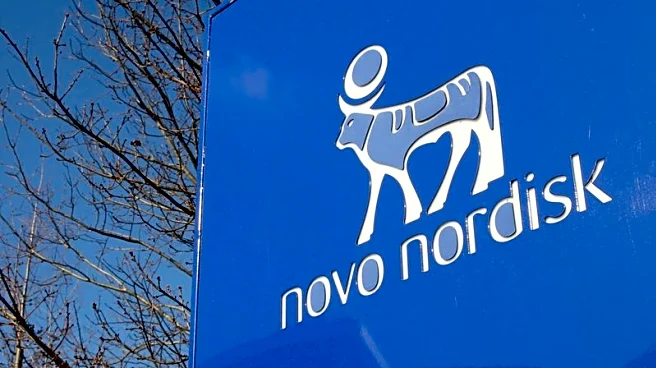By Jacob Gronholt-Pedersen and Stine Jacobsen
COPENHAGEN (Reuters) -Novo Nordisk's top shareholder forced through an overhaul of the Wegovy-maker's board at a shareholder meeting on Friday, asserting control
in a move that sparked protests by some investors over governance concerns.
The boardroom shake-up, which erupted when Novo's board Chair Helge Lund and the independent members stepped down last month under pressure, has handed unprecedented power to the Novo Nordisk Foundation, which controls 77% of Novo's voting rights.
"It was not possible to reach a common understanding with the Novo Nordisk Foundation regarding governance principles and the future composition of the of the board of Novo Nordisk," Lund told shareholders.
The foundation's chairman, former Novo Nordisk CEO Lars Rebien Sorensen, was installed as the drugmaker's new chair on Friday, giving him a dual role unprecedented in the firm's history and raising concerns about him amassing too much power.
The move comes as Novo Nordisk battles to stabilise its business after a tumultuous period that has seen multiple profit warnings, an abrupt change of CEO, a sliding share price and weakening sales growth in the lucrative obesity drug market.
OUT WITH THE OLD, IN WITH THE NEW
The Novo Nordisk Foundation controls Novo Nordisk through its Novo Holdings arm, despite owning only around 28% of the share capital. Sorensen, a former long-time Novo Nordisk CEO, said he plans to serve as chair for two to three years.
Novo Nordisk rose to become Europe's most valuable firm thanks to its blockbuster obesity drug Wegovy, which it launched in 2021, but has stumbled over the last year amid slowing sales and intensifying competition from rival Eli Lilly.
Sorensen has criticised the old board for not acting quickly enough to stem the decline in its key U.S. market. He pushed over the summer to speed up the naming of a new CEO, Mike Doustdar, who is spearheading a tough round of layoffs globally.
Novo was first to launch a highly effective weight-loss drug in 2021, but lost its first-mover advantage as supply constraints and a string of commercial missteps paved the way for rival Eli Lilly and compounded copycat drugs.
The non-profit Novo Nordisk Foundation, established in 1989 though with roots back to the 1950s, was set up to ensure financial and strategic stability of the Novo Group while advancing scientific research and humanitarian causes.
Sorensen's dual role is seen as a test of the foundation-ownership model, normally known for its stability, also used by other big Danish firms like Maersk and Carlsberg.
(Reporting by Jacob Gronholt-Pedersen, Stine Jacobsen and Louise Rasmussen, editing by Terje Solsvik)









